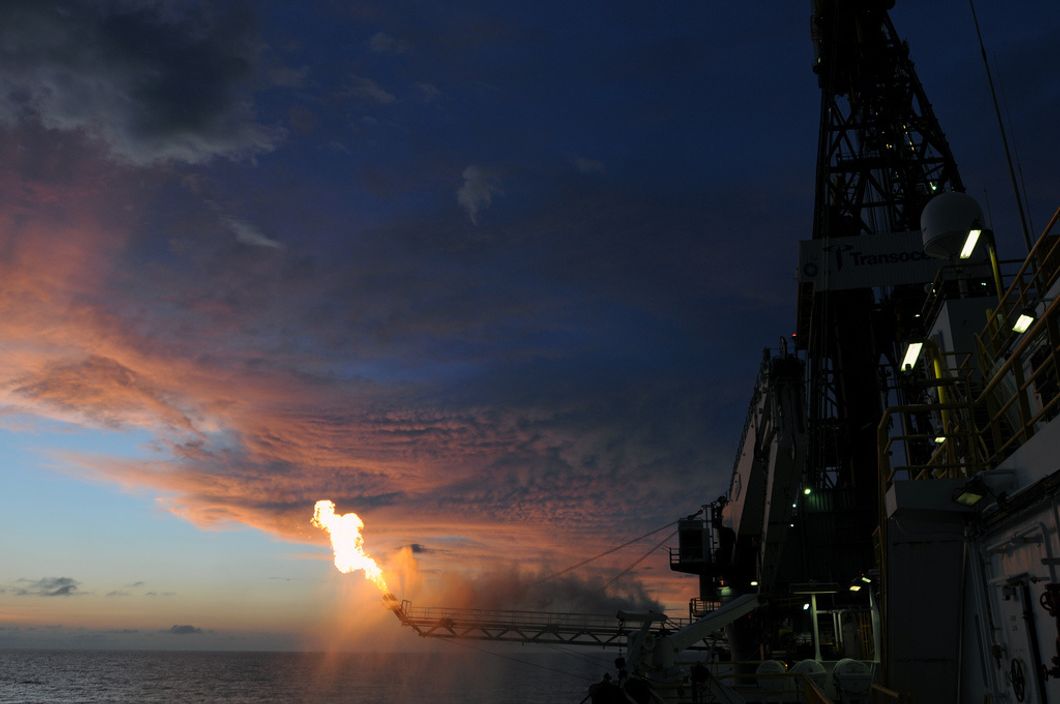"Earth provides enough to satisfy every man's need, but not every man's greed." -Ghandi
Drawing inspiration from a chapter of Joseph R. Desjardin's Environmental Ethics: An Introduction into Environmental Philosophy this week I have been pondering upon the deepwater horizon spill; and ultimately the debate over public and private lands.
In America, with six hundred million acres of land, about one-third of this is classified as public. Alaska tops the charts with more than half of its total area being owned by the Federal government.
When land is segregated for public use it begins to bring many questions to light. Concerns such as, if this is public land, how do you use it to serve the public? Who should be the one deciding that? And how can we handle the situation when public groups disagree?
Let's consider coastlines. In America's case, we claim a border of territorial waters of 12 nautical miles. This means that we are responsible for treating this ocean area with the same law as our land regions, as it is considered sovereign property. However, in contrast, the exclusive economic zone of the US is 200 miles from shore, meaning that we have the right to exploit marine resources within this range. Many federal agencies hold domain over these ocean regions, including but not limited to: the Coast Guard, the National Oceanic and Atmospheric Administration, The Army Corps of Engineers, the National Park Service, the U.S. Fish, and Wildlife Service, the Department of Defense, the National Marine Fisheries Service, and the EPA. State and local organizations have a role in these waters as well, most prominently in the issue of fracking. Less than one-third of the oil consumed in the U.S. is produced domestically, yet we use more than 21 barrels of oil each day.
On April 20th, 2010, the Deepwater Horizon oil rig about 40 miles off the coast of Louisiana faced a large explosion. There were a few deaths, but the flow of oil into the ocean could not be stopped regardless of various efforts. The previous major oil spill, Exxon Valdez, dumped a previous of 260,000 barrels of oil, compared to BP's 5 million barrels. The entire ecosystem was harmed in this spill. Many animals died on contact and out was found washing to shores almost 1000 miles away. Tourism and fishing were hit extremely hard. BP acknowledged responsibility, paying for clean up efforts and establishing a 20 billion dollar fund to compensate victims. Within a month, the U.S. Department of Interior had placed a ban on all off-shore drilling until further inspection. This was overturned a month later, with critics arguing in favor of the jobs of these oil workers.
Honestly, this issue of the Deep Horizon spill is pivotal to me and should be for humans worldwide. Let's consider the trade-off between banning oil rigs and the economic opportunity of keeping the practice. In my opinion, I do not believe that the risk of oil rigs breaking is enough to warrant the economic growth and ease that they offer. Since problems with these oil spills create such long-lasting and irreversible effects, I think environmental morale should be considered and outweigh the economic opportunities. We can always find new alternatives to oil that have safer and more predictable effects, such as biofuels or natural gas, although I recognize we will never have complete dependence on these alternatives.
When the morale behind public land is addressed, I believe we should answer with less ethnocentric attitudes. After having lived in Finland for a year and seeing the Nordic countries ideology of "Every Man's Right" or "the right to roam", I believe public land should be kept public. The privatization of land contributes to America's poor community standards and leads to larger platforms for issues. With public land and a bit of education on it, hopefully, citizens can begin to realize the importance of such places and treat them with respect and the heart of a conservationist.






 The minimum wage is not a living wage.
StableDiffusion
The minimum wage is not a living wage.
StableDiffusion
 influential nations
StableDiffusion
influential nations
StableDiffusion












